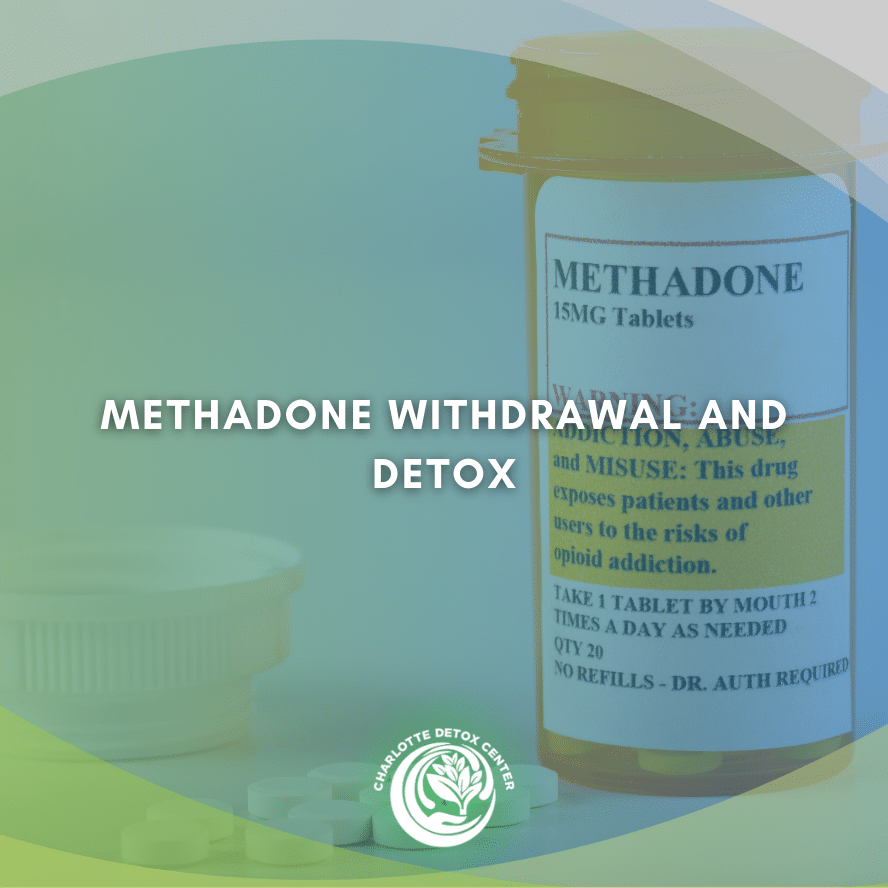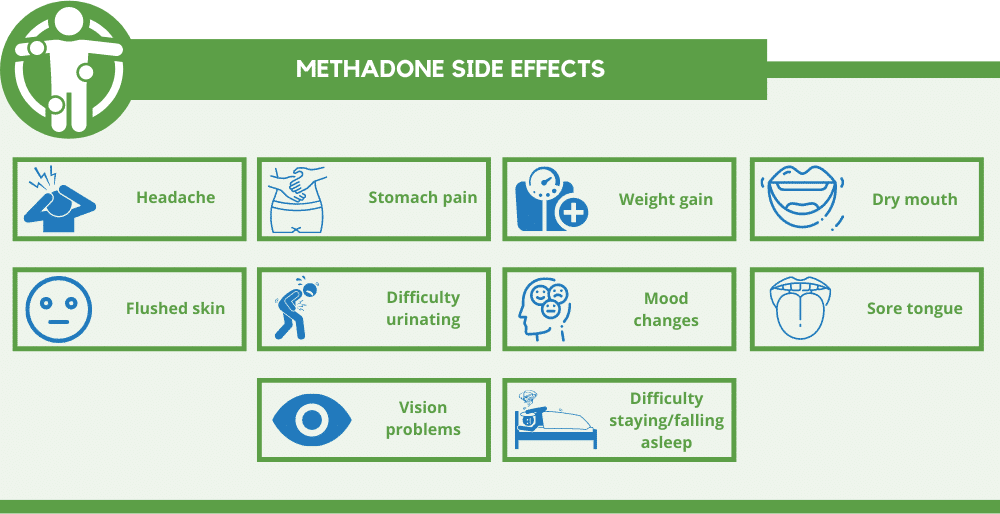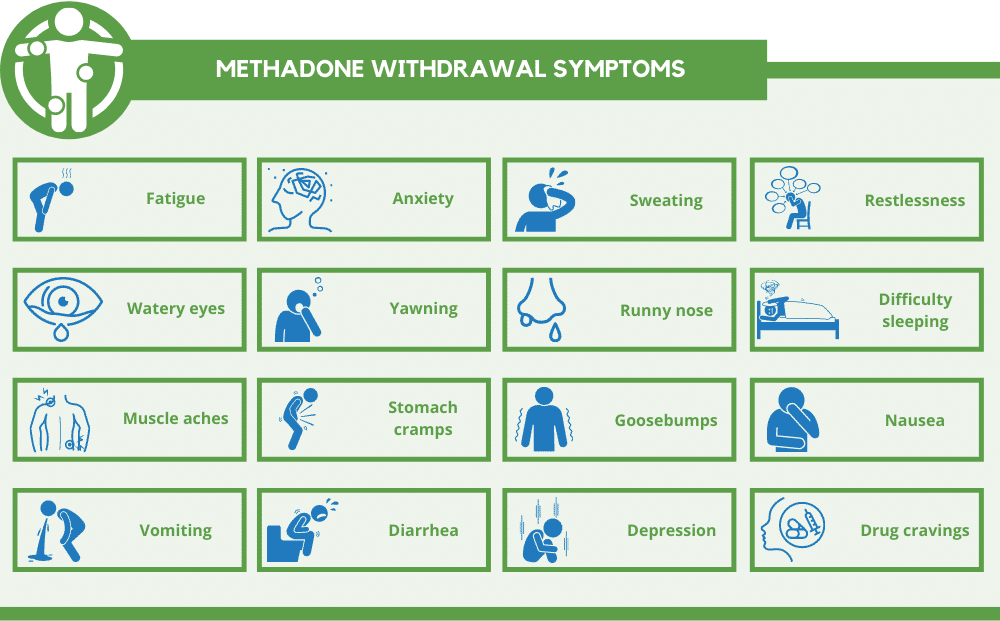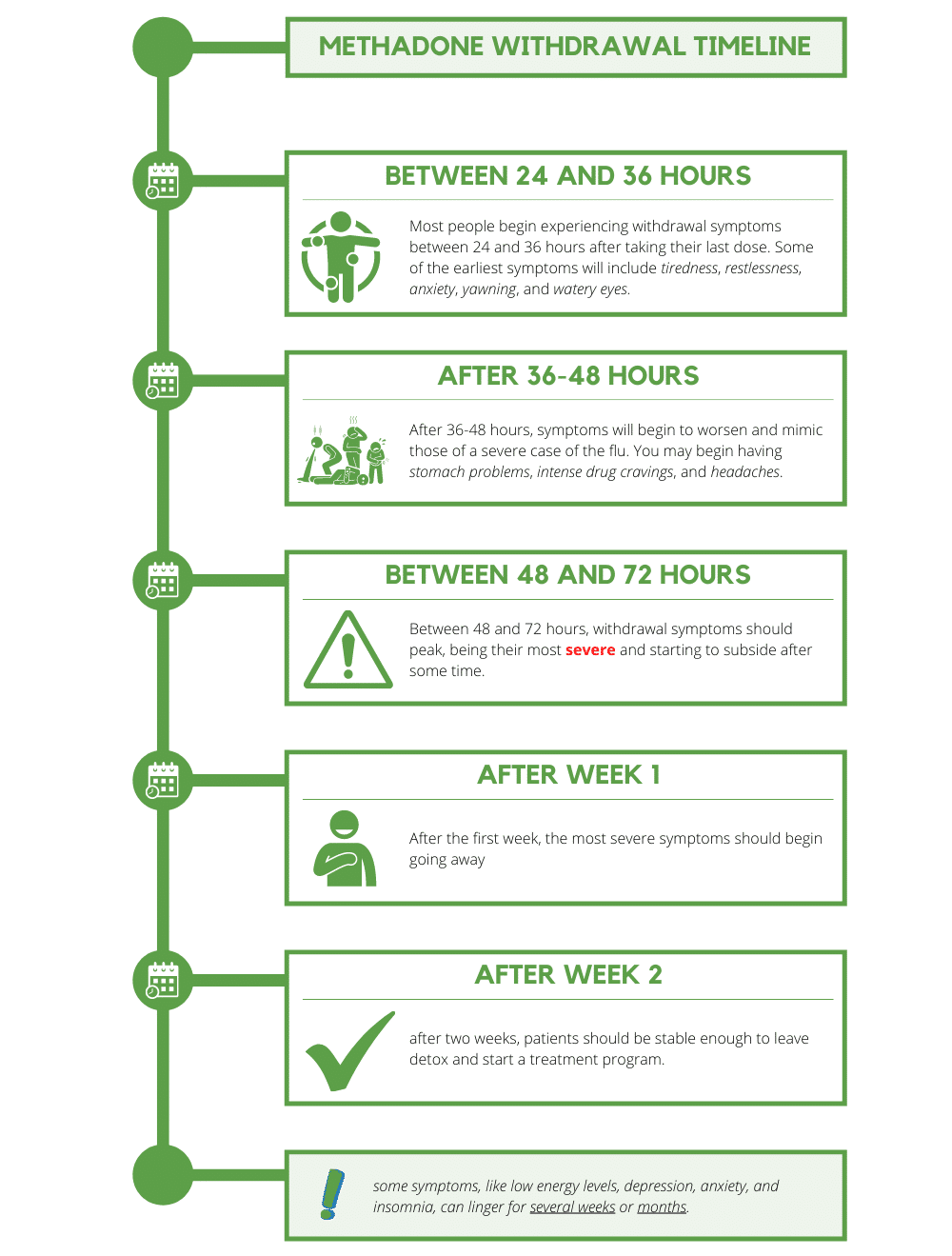Methadone Withdrawal and Detox

Medically Verified: 2/1/24
Medical Reviewer
Chief Editor

All of the information on this page has been reviewed and verified by a certified addiction professional.
If you or someone you know has ever attended a Charlotte, NC detox center for opioid treatment, you may have been prescribed a medication like methadone or Suboxone to help you deal with your withdrawal symptoms. Even though these medications are safe when used correctly, both can be habit-forming when abused.
Methadone, in particular, has a bad reputation for being addictive. As a result, Suboxone tends to be used more frequently, instead. If you take methadone for an extended period of time or abuse the drug, it can lead to physical and psychological dependence. When you quit taking it abruptly, methadone withdrawal symptoms that mimic symptoms of the flu may set in.
What is Methadone?
Methadone is an FDA-approved prescription medication that is used to treat pain and opioid use disorder. This means it helps treat addictions to heroin and prescription pain relievers such as oxycodone, hydrocodone, morphine, and fentanyl.[1] It works by changing the way the nervous system and brain respond to pain.
Methadone itself is an opioid, however, it is helpful in reducing cravings for opioid drugs and is easier to taper off of than other more potent opioids. It can also help reduce opioid withdrawal symptoms. Since it is an opioid, it has the potential for abuse and addiction.
Methadone should always be used in combination with an addiction treatment program that utilizes counseling, peer support, and behavioral therapy.
Methadone Side Effects
Like other opioids, methadone may cause side effects – especially if it is abused. Common side effects of methadone include:[2]

- Headache
- Stomach pain
- Weight gain
- Dry mouth
- Flushing of the skin and face
- Difficulty urinating
- Mood changes
- Sore tongue
- Vision problems
- Difficulty falling asleep
- Difficulty staying asleep
When taken in high doses or when combined with other opioids, benzodiazepines, or alcohol, methadone may cause an overdose. Symptoms of methadone overdose mimic those of an opioid overdose – slow or shallow breathing, cold and clammy skin, and unresponsiveness – but can be reversed if treated in time with Naloxone.
Methadone Withdrawal Symptoms
You should never stop taking methadone unless you are directed to do so by your physician. This is because stopping the use of methadone can cause withdrawal symptoms.
Common symptoms of methadone withdrawal include:[3]

- Fatigue
- Anxiety
- Sweating
- Restlessness
- Watery eyes
- Yawning
- Runny nose
- Difficulty sleeping
- Muscle aches
- Stomach cramps
- Goosebumps
- Nausea
- Vomiting
- Diarrhea
- Depression
- Drug cravings
Methadone withdrawal can cause a significant amount of pain and discomfort, but it is rarely life-threatening. With that said, complications are more likely in people who habitually mix methadone with other substances or those with underlying health conditions. As a result, it’s always a good idea to detox at a medical treatment facility in Charlotte, NC.
Methadone Withdrawal Timeline
Methadone is a long-acting opioid, so the drug remains in the body for a long time. This also means it can take several hours before any withdrawal symptoms set in.
Most people begin experiencing withdrawal symptoms between 24 and 36 hours after taking their last dose. Some of the earliest symptoms will include tiredness, restlessness, anxiety, yawning, and watery eyes.
After 36-48 hours, symptoms will begin to worsen and mimic those of a severe case of the flu. You may begin having stomach problems, intense drug cravings, and headaches.
Between 48 and 72 hours, withdrawal symptoms should peak, being their most severe and starting to subside after some time.
After the first week, the most severe symptoms should begin going away. Then, after two weeks, patients should be stable enough to leave detox and start a treatment program. However, some symptoms, like low energy levels, depression, anxiety, and insomnia, can linger for several weeks or months.
Methadone Detox Protocol
The safest and most comfortable way to get through methadone withdrawal is to go to a medical detox center in Charlotte, North Carolina. Detox centers have nurses and doctors on-site who can monitor your symptoms, administer medications, and provide you with much-needed support and relief.
Doctors can prescribe drugs like buprenorphine, naloxone, and clonidine to help reduce the severity and longevity of your symptoms. These medications can also help reduce your cravings for opioids, making detox a much easier process.[4]
Another option for methadone detox is a methadone taper. This approach requires careful medical supervision as a doctor slowly reduces a patient’s dose of methadone until his or her withdrawal symptoms are nil. A methadone taper is a safe and effective process, however, it can extend the detox process longer than a rapid detox.
In addition to medication management, therapy and emotional support are useful during the methadone detox process. Group therapy can help you form bonds with people who understand what you are going through and individual counseling can help you meet your recovery goals.
Start Methadone Detox in West Palm Beach
Whether you’ve been taking methadone for so long that your body has become dependent on it or you have been abusing it to get high, know that you’re not alone. At Charlotte Detox Center, we understand both how difficult methadone withdrawal can be and how challenging it can be to get sober from such an addictive drug. That’s why we create custom treatment plans tailored to your needs to put you on the right path towards success.
If you or a loved one are struggling with methadone addiction, contact us today and learn more about our drug and alcohol detox program in Charlotte, North Carolina.
References:

